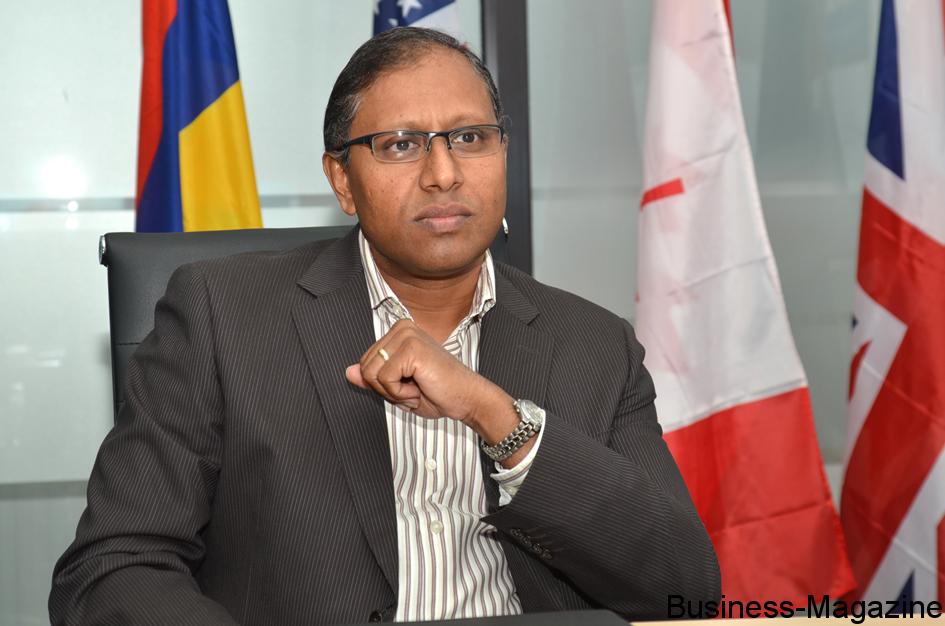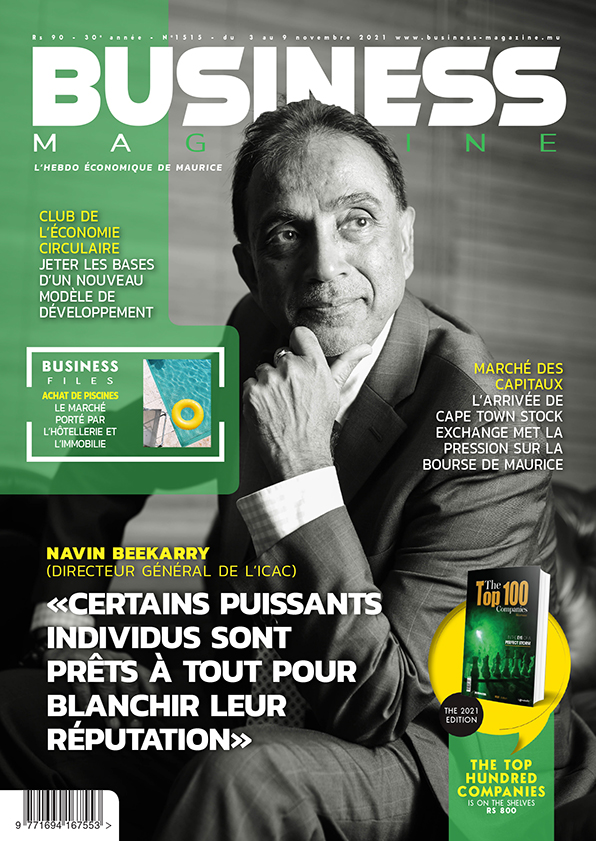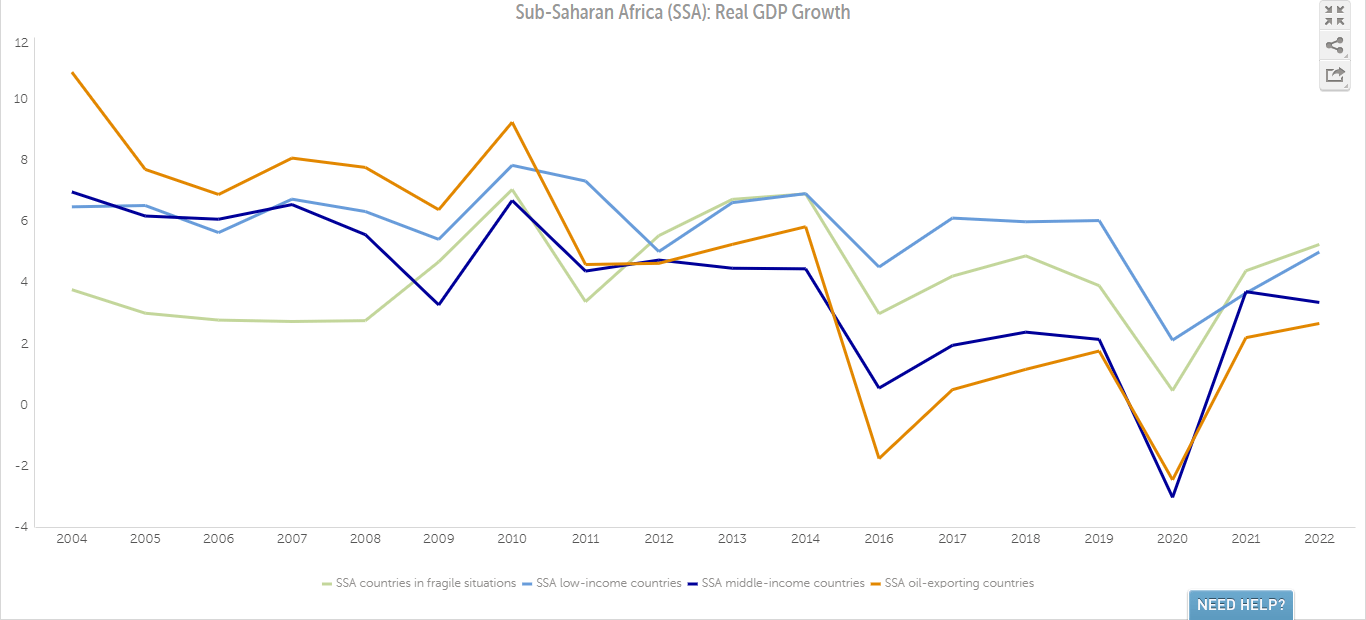Vidia Mooneegan: “The ICT-BPO industry can realistically aspire to reach double digit growth”
Share

It is time to take bold initiatives in order to take the ICT-BPO sector to its next level, says the Managing Director of Ceridian Mauritius. In the following interview, he commented on some burning issues like the shortage of qualified labour and the need for competitive exchange rates.
BUSINESSMAG. Has the ICT-BPO sector been impacted by the current political uncertainties?
The ICT-BPO sector is a global business sector which relies on strong government support, continuity of government policies and a good understanding of the sector’s opportunities and challenges by the government and public institutions. We hope that during this time of election, it is business as usual and some key decisions can be made.
One item of critical importance for our sector and global business as a whole is to get the European Parliament to approve our data protection legislation in order to allow personal data to flow from EU countries to Mauritius. Our data protection legislation needs to be amended to ensure an adequate level of protection before we start the approval process with the European Commission. Unfortunately, this subject has not been given the right level of attention by the relevant authorities as they do not fully understand the criticality of this requirement. Some businesses are at risk of closing down their operations. With the coming general elections, this process will be further delayed for months.
BUSINESSMAG. What would you expect from a new government?
A number of proposals have been submitted to the government by the industry to take it to its next level and achieve double digit growth. Here are a few. Firstly, to continue to invest in training to create a sufficient talent pool (maintain YEP/ISDP). Secondly, a more effective promotion of Mauritius capabilities on the world stage to attract more business and investors. Thirdly, to transform the industry into a high value industry creating high value jobs which will increase GDP, reduce the problem of graduateunemployment and reverse brain drain. We must also grow business with Africa focusing on high value activities, e.g. software product development, analytics, R&D. We should set up favorable ecosystem to create a community of innovators and allow start-ups to thrive. Support must be given to companies in order to attain global standards and certifications to enable them to compete globally. Outsourcing must also grow in Mauritius in both private and public sector organizations. There is as well a need to reduce the cost of internet connectivity by 40%. Government must push further the adoption of techno-logy at schools and universities. And finally we asked to develop Mauritius 2020 Global Business Services roadmap (leveraging ICT-BPO and Global Business sectors).
BUSINESSMAG. To what extent the BPO sector is dependent on exchange rates fluctuations?
Interest rates and exchange rates are highly correlated. Stable exchange rates are important as the volatility in currency poses a major challenge to our industry and creates uncertainty in the planning process and the pricing of contracts.
A weak rupee is generally a good thing for exporters. However, a weak rupee can actually have a negative impact as ICT-BPO companies import all of their hardware and software. Most ICT-BPO companies are currently looking at huge expenditure in ICT technology as they move up the value chain. This can increase the cost base of our companies. Furthermore, a weak rupee will create inflatio-nary conditions which may affect several aspects of the Mauritian economy and put the ICT-BPO industry under cost pressure (e.g. transport cost, international travel and accommodation).
BUSINESSMAG. How is the sector coping with the shortage of qualified labour?
When investors are evalua-ting locations to set up their businesses, they consider three main criteria. Our score on these criteria are: financial attractiveness (medium), people skills and availability (low) and business environment (medium). Mauritius scores poorly on the people index. This is the biggest area of concern for the Mauritius ICT-BPO industry.
Skills availability and access to qualified talent remain a predominant driver and differentiator for global sourcing and investment. For example, we note that India is not the safest country in the world. However, they are attracting more outsourcing business than any other country due to their large talent pool.
We need to open up the country to qualified talent to work in Mauritius to complement the Mauritius workforce. Dubai and Singapore are good examples. This inflow of qualified professionals will contribute significantly to the economy at large. We also need to put in more effort to expand and accelerate the education hub strategy to attract reputable institutions and bright foreign students who can add to our labour force.
We need to have closer collaboration between government, industry and education system to successfully tackle the talent
crunch problem. There have been many workshops and stu-dies on this subject but few impactful decisions. The small steps taken over the past few years are inadequate to solve the problem. Other sectors of the economy are equally affected by the lack of qualified human capital. We need to look at the high level of unemployment, including graduates, as a huge opportunity for Mauritius. We need to have the right vision and leadership, and we need to harmonize our efforts.
Recently, we have noted much pessimism from business leaders in press articles. One such article quoted someone sa-ying that he is thinking of transferring his business to Madagascar because of the “lundi cordonnier” practice in his company. This is a management issue and reflects the situation within that particular company. The reality is that this is not an issue for well-run organizations in modern Mauritius.
Unfortunately, many potential investors and clients will assume that this is a common practice here. We need to be more responsible and balanced in our communication. I agree that we have some challenges but they are surmountable.
BUSINESSMAG.What could we expect in terms of growth for the sector this year?
Let us look at the global picture. The global ICT-BPO spen-ding is projected to grow at 4.5% in 2014, outpacing global GDP growth of 3.7%. The ICT industry has remained a powerhouse because it is not stationary and has kept adapting to newer opportunities. Greater automation and virtualization will change outsourcing. Disruptive technologies such as cloud, mobile and analytics are changing the industry.
External expenditure on global outsourcing services by large corporations is growing at 15% year-on-year. Nasscom estimates that India ICT-BPO industry will grow 13-15% in 2014/15. The Mauritius ICT-BPO industry can realistically aspire to reach double digit growth in 2014/15 and beyond.
Based on available statistics, the Mauritius ICT-BPO industry directly employs some 19,000 people. The expected growth in 2014 will be around 9-10%. We can do better. We need to focus on high growth segments of the global industry. As Mauritius journeys towards a high income economy, some segments (low value activities) of the ICT-BPO industry spectrum will disappear. These segments have not been growing fast as we have faced fierce competition from lower cost jurisdictions. Mauritius ICT-BPO industry needs to reinvent itself and put in place a transition plan.
}]
















